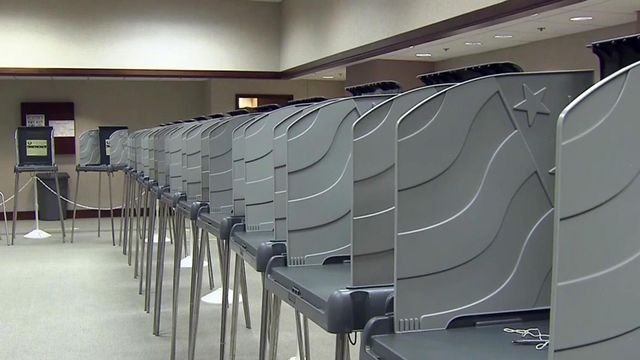Vetoes on judicial, elections bills fall
Two more of Gov. Roy Cooper's vetoes fell by the wayside Wednesday following override votes in the House.
Posted — UpdatedHouse members voted 74-42 to enact Senate Bill 486 over Cooper's objections. The bill includes various changes to state elections laws, such as requiring criminal background checks for state and county elections workers, defining which polling site software could be used and barring candidates who lose in primaries from jumping to a third party to run in the general election.
Rep. David Lewis, R-Harnett, called Cooper's veto nonsensical since it references partisan judicial elections.
"I'm not sure he actually read the bill," Lewis said.
The bill includes a provision spelling out how judicial races will be handled this year because primaries were canceled, but Lewis noted that partisan races for seats on the bench is already state law.
Rep. Darren Jackson, D-Wake, urged his colleagues to uphold the veto, saying enacting the law would invite a legal challenge since some people have already filed to run under a third-party banner.
Rep. Nelson Dollar, R-Wake, said 19 District Court judges in Wake County have to campaign across an area "at least the size of a congressional district."
"It's an absurd situation," Dollar said. "It's hard for people to know who they're voting for or have any connection."
The measure would split the county into six smaller districts for District Court judges. Likewise, Mecklenburg County would be divvied up for District Court seats, and its Superior Court districts would be adjusted to reflect population changes there.
Jackson noted that the changes were being made only to two urban counties that usually lean toward Democratic candidates.
"It's being done for politics," he said. "[Judges] realize that, if they are Republican ... by putting that partisan label on them, you probably sank their careers. So, they needed to figure out something else. Now, they've subdivided Wake County so that they could still be re-elected as a Republican."
Rep. Scott Stone, R-Mecklenburg, said it's "highly unreasonable" to expect Mecklenburg County to continue under existing judicial maps, which don't reflect 600,000 people who have moved there in recent years.
Dollar, Stone and Rep. Justin Burr, R-Stanly, who tried for months to redraw judicial districts statewide before settling on two smaller efforts, said local judges support the latest measure.
"These discussions have been ongoing for over a year," Burr said. "At the end of the day, it is responsibility of this legislature to make the decision and to right the wrongs that we know are in place."
Cooper has vetoed 16 bills since he took office 18 months ago, and lawmakers have overridden 13 of them.
Related Topics
• Credits
Copyright 2024 by Capitol Broadcasting Company. All rights reserved. This material may not be published, broadcast, rewritten or redistributed.






